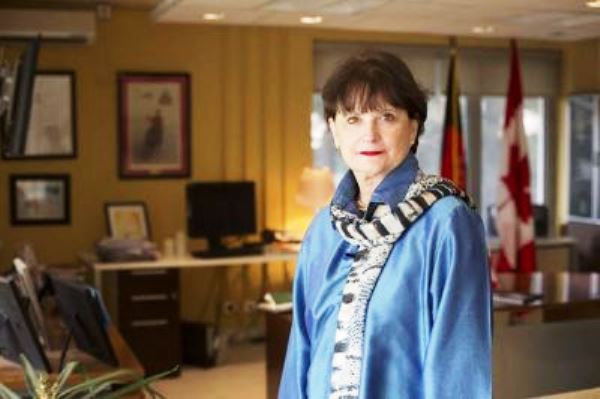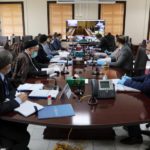On World Press Freedom Day, the United Nations envoy to Afghanistan on Sunday noted that hate speech must not been confused with free speech.
“Hate speech – including incitement to violence and other forms of this poisonous activity – cannot be allowed to turn Afghan against Afghan, to harm peace and reconciliation efforts, or to damage sensitive political processes,” Doborah Lyons, UN secretary-general’s special representative for Afghanistan and head of UNAMA, said in a statement. “Stigma, xenophobia, racism and all forms of discrimination are an affront to universal human values and rights.”
She said that hate speech undermines social cohesion and erodes shared values, setting back the cause of stability and human dignity. “The media must stand up against hate speech, andwe all must consider what we can do to safeguard journalists and to recognize our collective obligations to take practical steps to address those forces that menace the media, including in the context of the COVID-19 pandemic.”
As COVID-19 threatens life in Afghanistan and around the world, Lyons said, the importance of the media providing accurate and fact-based information cannot be overstated.
“Harmful health advice has proliferated, with falsehoods filling the airwaves and conspiracy theories infecting the Internet. I salute the journalists who are fact-checking misleading stories, as the infection of misinformation puts lives at risk.”
The envoy said that the United Nations remains firm in its position that media freedoms must be protected as part of any peace process. All parties in any peace negotiations must uphold all fundamental human rights, including the right to freedom of expression, which is enshrined in Article 19 of the Universal Declaration of Human Rights. Nothing should be allowed to threaten the critical advances in press freedoms in Afghanistan.
The theme of this year’s World Press Freedom Day — Journalism Without Fear or Favour — is a call to secure independent journalism. The call is to everyone, including governments, civil society, academia and youth, to build on successes in professional journalism as the foundation for media providing the public with reliable facts, inclusive views and a diversity of cultural expressions, Lyons said.
She said that the United Nations is actively engaged in supporting independent media in Afghanistan. “Our human rights colleagues track crimes against media that are related to the armed conflict, and the UN family in Afghanistan promotes theprotectionofjournalists and battling impunity to bring perpetrators to justice.”
According to Lyons, the United Nations has a commitment to defend Afghanistan’s free press, and “we will do all in our power to support free media so all journalists — Afghan media and foreign correspondents alike — can operate without fear of being harassed, intimidated or attacked, and so the media can operate safely in an environment where crimes against them will be addressed swiftly and effectively.”
“As we celebrate the successes of the Afghan press corps on WorldPress FreedomDay, we must remember the journalists who have lost their lives while pursuing their noble objectives in Afghanistan.Others have suffered intimidation and beatings while carrying out their duties.”
Meanwhile, the UK embassy in a statement renewed its commitment to supporting Afghanistan’s media and defending freedom of speech.
It noted that last year the British Embassy in Kabul implemented projects worth around £300,000 to support access to information, journalist safety and supporting female journalists.
“The development of Afghanistan’s media has been one of the great successes since 2001,” the statement said. “Freedom of the media and freedom of expression more broadly, is an essential quality of any functioning democracy; people must be allowed to discuss and debate issues freely, to challenge their governments, and to make informed decisions; informed by a strong and robust media.”
“Many Afghan journalists have died in the course of their work to protect these gains. It is vitally important that their sacrifice was not in vain and that media freedom is defended in Afghanistan. The UK will remain a committed partner in this area working with government, media and civil society.”













